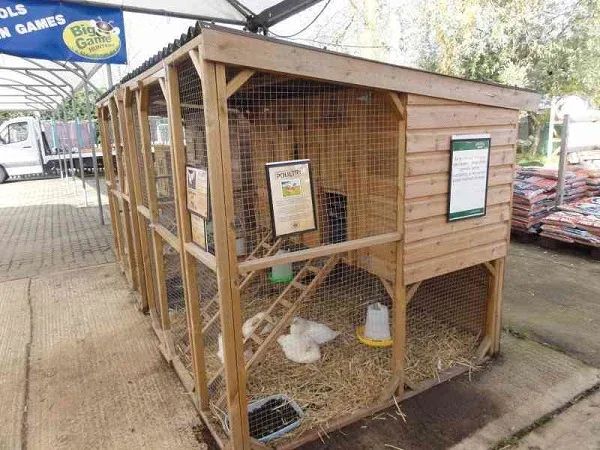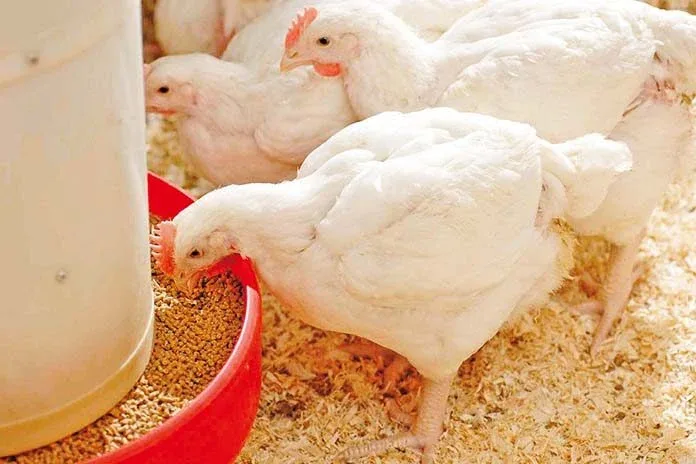Poultry farming can be a highly profitable business venture thanks to the high demand of poultry and poultry products in the country.
The most popular type of poultry kept in the country is chicken since it has a high maturity and consumption rate which means that you don’t need to put a lot of effort into the business. However, you can also venture into other types such as duck, quail and turkey which can also be highly profitable due to their unique nature.
If you’re wondering how to start a poultry business, here’s an in-depth guide to get you started.
Breeds
Choosing the right breed plays a key role in the success of your business. Therefore, it’s important to know the different chicken breeds in the market so you can make the right choice. There are breeds that have a higher meat yield and others are more resistant to diseases. The best way to know the ideal chicken for your business is to consult with a specialist. Generally, there are three types of chicken that people go for:
- Layers: They are reared for egg production and start laying eggs at around 16 to 20 weeks. Productions start declining at 25 weeks and by 75 weeks they stop becoming profitable. After that, they’re slaughtered at 12 months for meat.
- Broilers: These are, by far, the most profitable type of chicken. They are reared for meat production which can be sold to hotels, butcheries, institutions, and supermarkets. It takes about 5 to 8 weeks for them to mature to a marketable size which is typically 2 kgs.
- Kienyeji: They can be kept for both meat and eggs. However, they produce fewer eggs and take time to reach maturity making their products more expensive. Some of the most popular breeds include Kari improved kienyeji chicken, Kuroiler chicken, Rainbow Rooster chicken and Kenbro chicken.
Location, Housing And Equipment
Whether you intend on setting up a small-scale or large-scale poultry business, there are some basic requirements you need to accommodate your chicken. These include:
Location
In any type of farming, land is the most important thing you need. You need to ensure that it’s sufficient for the kind of business you want to set up. For a medium-scale business, a 120 x 60 square meters plot of land is sufficient. It’s also important to enquire whether it’s permitted to set up commercial plant on the land. In some residential areas, this is prohibited. You also need to ensure that the location is safe for poultry farming. Some areas are more prone to predators like snakes and wild cats which pose a danger to chickens.
Housing
Chicken coops come in all shapes and sizes. You can have one custom-made or buy a ready-made one depending on your preference, the space and the scale of your business. Additionally, chicken coops are fairly affordable. A medium-scale one can cost around Ksh 10,000. It’s advisable to go to an experienced coop builder as they know the requirements for the number of chickens you want to keep. For instance, your cage should have enough ventilation and space for the chicken to roam around. If you plan on setting up the coop on your own, here are some things you should keep in mind:
- The coop should be rectangular with a roof.
- It should face an east-west position to allow proper ventilation.
- The floor should have wood shaving to absorb moisture from chicken waste.
- The walls should have mesh wiring to protect the chicken from predators.
- There should be adequate lighting and heat in the evening.


Equipment
From heating gadgets to feeders, you have to choose the right equipment to ensure the success of your business. You also need to choose whether you want glass, plastic or wooden equipment. Glass may be more expensive but they are long-lasting. Some of the essential equipment needed for a poultry business include heaters, lighting systems, waste disposal systems, egg trays, incubators, perches, feeders, drinkers, nests, and crates. You may also need a transport system depending on the size of your business.
Feeding Plan, Vaccination And Care
Chicken are easy to rear but they’re also highly prone to diseases. It’s necessary to ensure that you give them the right care so they can survive till maturity. 70% of your production cost will go to feeding and health care. Therefore, your business’s success is highly dependent on the quality and schedule of feeding and health care of your chicken.
Feeding plan
Providing your chicken with good nutrition ensures that they are healthy and strong enough to fight diseases and grow to their full potential. You may opt to buy ready-made feed or make your own feed. If you’re a beginner, it’s advisable to buy ready-made feed.
If you choose to prepare your own feed, ensure that it contains proteins, carbohydrates and Vitamin A, Vitamin D and Vitamin B complex. Some feed you can give chicken includes pasture, grains, insects, seeds and bugs. Additionally, you should ensure that there is food and water in the feeders at all times.
Newborn chicks and chickens that are unwell should be given glucose water to keep them hydrated and provide them with energy. To make it easier to keep track of their feeding schedule, you can create a timetable to know when to refill their food, change their water and transition feeds.

Vaccination
Chicken diseases can be really disastrous, threatening the success of your business. Therefore, you need to make sure that your chickens are vaccinated at the right time. This should be between 14 and 21 days of age. When introducing new chicks, keep them separate from the older ones until they have been checked by a veterinarian.
You need to keep proper medication at the farm in case your birds fall ill to avoid spreading the disease to other chickens. Additionally, you should check on their health regularly and alert a veterinarian when you notice signs of a disease.
Care
You will need to check on your chicken regularly during the first few weeks. Since chicks cannot regulate their own body temperature, you will have to adjust the temperature in the housing manually using a heating gadget. You should check on them at least 5 times a day during the first few weeks to monitor their temperature, keep predators and pests away, and keep their food and water clean. Lights must stay on throughout the day to keep the chicks warm.
Ensure that you have a reliable source of electricity or a chargeable light to avoid exposing your chicks to cold. Give your chicken enough room to move around and sleep. The most important chores will be keeping their feed clean, keeping the floor dry and collecting eggs when they start to produce them.
Process
The process of starting a poultry business is fairly straightforward. To ensure that you don’t forget anything important, it’s best to prepare a business plan using the information that you have about the business. Some of the important things to include in your plan are:
- Choose the type of chicken to focus on
- Select an appropriate piece of land
- Build the structure
- Buy poultry farming equipment
- Select a trusted supplier to buy chicks from
- Maintain a proper feeding and health program
- Market and sell your poultry harvest
Cost
Last but not least is the cost of starting a poultry business. The price varies depending on the size of the business and it could range anywhere between Ksh 3,000 to Ksh 200,000. For a beginner, you will need around Ksh 25,000 to set up a medium-sized poultry business. The costs of rearing broiler chickens are as follows:
- Housing – Approximately Ksh 6,000
- Chicks – Approximately Ksh 8,000 for 100 Kenchic chicks
- Equipment – Approximately Ksh 4,000
- Feed – Approximately Ksh 2,000 to Ksh 4,000 per bag
- Vaccination – As agreed
- Labour – As agreed
Note: It’s best for beginners to start with less than 500 chicks. Additionally, you may need to undergo some form of training from an experienced poultry keeper to avoid making unnecessary mistakes.

